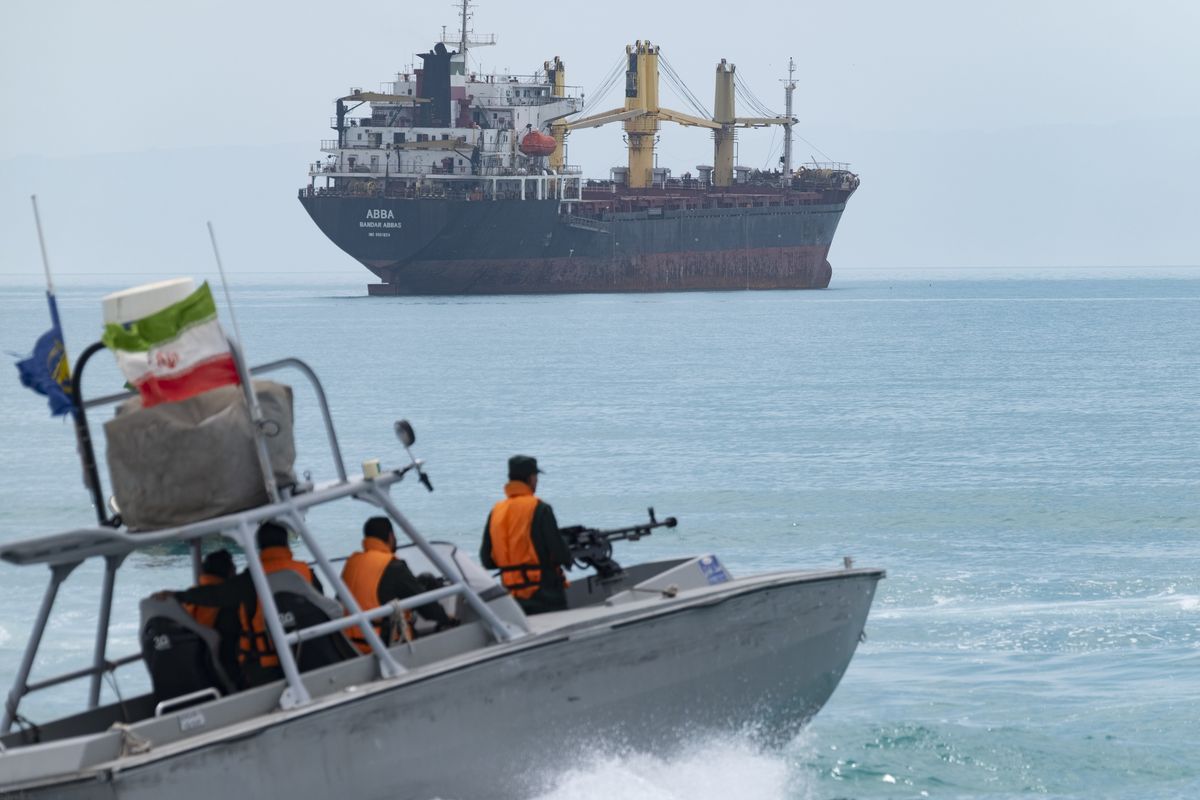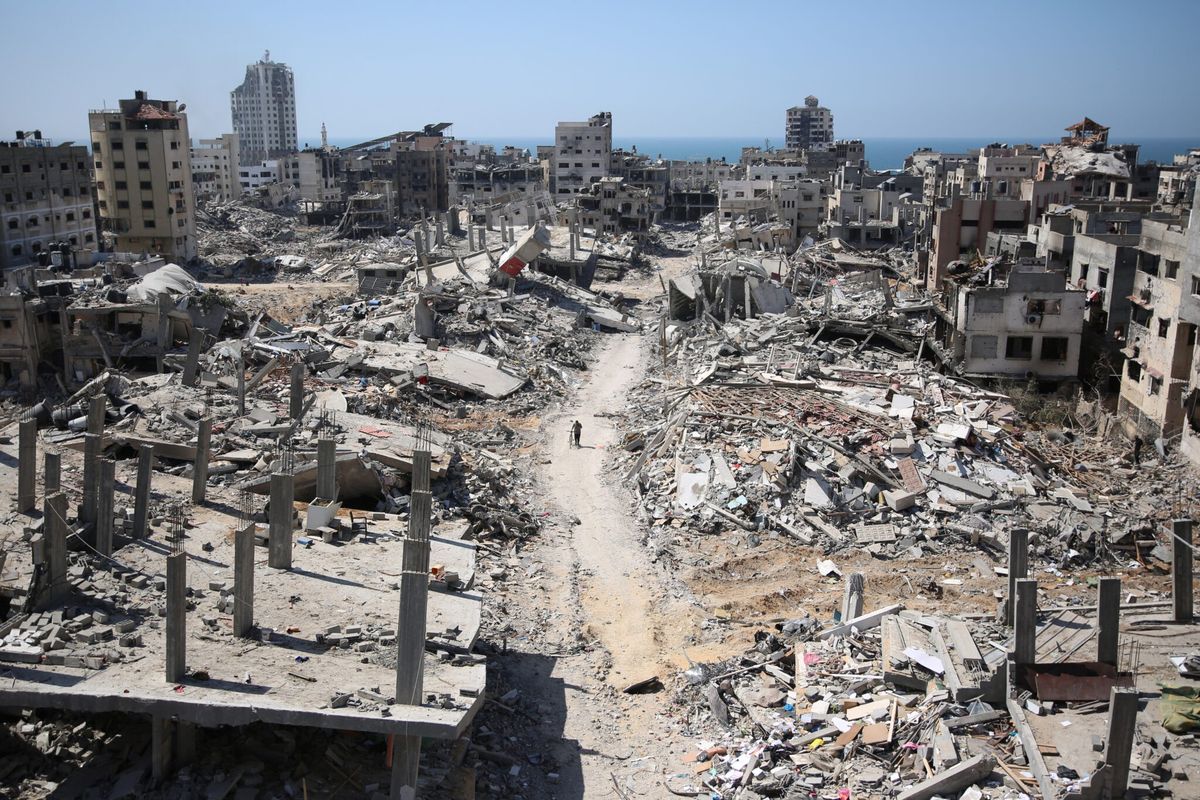OPINION — In 2011, after five and a half years in captivity and complex negotiations involving an Israeli activist, Israeli government officials, and outside foreign mediators, Israeli soldier Gilad Shalit was released – in exchange for 1,027 Hamas terrorists in Israeli prisons.
The negotiations to secure his release were prolonged, and extraordinarily complex, and involved negotiating with a terrorist group (Hamas) dedicated to the destruction of the state of Israel.
Such negotiations might – for some observers - offer proof of concept, in that one can meaningfully negotiate hostage releases with the most hardened, ruthless, and destructive terrorist groups, such as Hamas, Hezbollah, and Boko Haram to achieve practical goals. But Hamas’ recent brazen, vicious, and relentless October 7th attack on Israel, including the murder, torture and hostage-taking of over 1,400 Israeli civilians and soldiers, has led many to question whether future negotiations with Hamas are ever possible.
It's not just for the President anymore. Cipher Brief Subscriber+Members have access to their own Open Source Daily Brief, keeping you up to date on global events impacting national security. It pays to be a Subscriber+Member.
Trained negotiators including diplomats, intelligence officers, and law enforcement officers have long argued that the answer to the above question is ‘yes.’ But the challenges of doing so, following a day in which Israeli Jews incurred the worst single loss of life since the Holocaust, and where the Israeli government has categorically refused to negotiate with Hamas, insisting upon completely destroying its ability to function as a terrorist organization, make formal negotiations unlikely.
Aside from official government policy, negotiating with Hamas after the huge social, psychological, emotional, and historical trauma to Israel, following a massive intelligence failure, would appear to be next to impossible. And the challenge of locating the 200+ hostages in Gaza, where many are dispersed throughout a city of 2.2 million Palestinians, and held by multiple terrorist groups, makes hostage rescue attempts unlikely, or extremely difficult at best.
Nevertheless, one assumes that the US military and its Israeli counterparts have pre-positioned rescue teams to act immediately upon any novel intelligence findings and data regarding the location and safety of the hostages. America also has other resources to provide support to any freed American hostages, including the FBI’s Office of Victim Services, the Dept. of Defense’s ‘post integration support activities’ - utilized by Britney Griner after her release from Russia, and more recently by Private Travis King after his release from North Korea - and medical/psychological assets with the US Dept. of State’s Bureau of Medical Services.
The latter Bureau has a long and storied history, going back to January 1981, when US Dept. of State regional medical officer/psychiatrist Dr. Esther Roberts, along with Navy Captain Dr. Noel Howard and another US government psychiatrist, accompanied the 52 released Iran hostages from Algiers to Wiesbaden Air Force Base in Germany, where they underwent further medical and psychological debriefings prior to their return home.
It is critical for hostages and their families to know that such powerful support systems exist and offer hope, reintegration, and psychological counseling. Hope is critical and sorely needed, because it can counter the corrosive, traumatic effects of lingering captivity for hostages and their families.
Subscriber+Members have a higher level of access to Cipher Brief Expert Perspectives and get exclusive access to The Dead Drop, the best national security gossip publication, if we do say so ourselves. Find out what you’re missing. Upgrade your access to Subscriber+ now.
But hope can also be exploited by hostage takers such as Hamas, and it, along with publicity – pervasive in today’s 24-7 media cycle and social media – can add to the risks for hostages. It can be manipulated through disinformation and misinformation, by Hamas, Hezbollah, and their patron (Iran) to create political, military, social, psychological, and economic pressures on Israel and its allies.
Today’s war has shown that Hamas, Hezbollah, and its progeny, as well as their paymasters Iran, Syria, and others, have become far more sophisticated in these aspects of ‘gray zone’ warfare than before.
American and Israeli leaders, along with hostage negotiators, diplomats, and intelligence officers, have to take into account a number of higher-order variables, including the dynamic and evolving relationships within the Middle East, and unpredictable events which will require less emotional reactions and more careful, thought-out responses to the current circumstances, which makes the heretofore-complex trade involving Gilad Shalit seem quite easy by way of comparison.
The best negotiators require and possess a combination of unique character traits, such as curiosity, nuance, trust, humility, confidence, empathy, and patience, as described in the classic works of Daniel Levin, Gershon Baskin, Giandomenico Picco, Gary Noesner, and Chris Voss.
Given the above-mentioned dynamics, and the ‘impossibility’ of currently negotiating directly with Hamas, third-party negotiators – from other countries, NGOs, ICRC, and private entities, have already emerged, quietly so. They have involved back-channel negotiations with Qatar, Turkey, and Egypt, and may also involve other [neutral] diplomats from Switzerland, Sweden, and other countries. Today’s scenario is one of the most complex hostage situations in recent decades. At a time when public emotions run high – in Israel, America, and throughout the Middle East – patience, care, time, and thoughtfulness will be required by our leaders, diplomats, negotiators, and intelligence/military personnel.
Most traditional law enforcement hostage scenarios last no more than a few days. Today’s scenario in Gaza is different, and weeks, months, or years may be necessary. And higher-order effects – recall the lone Tunisian fruit seller who burned himself to death and thereby ignited the Arab Spring of 2011 – mandate careful attention and awareness of ongoing uncertainty and ambiguity.
When China’s President Xi Jinping and Russia’s President Vladimir Putin met in Moscow earlier this year, Xi mentioned that “right now there are changes – the likes of which haven’t seen for 100 years,” and Putin agreed. How prescient they turned out to be. And I suspect that Iran’s Supreme Leader Ayatollah Khameini and its President Raisi would agree. Or as Thomas Paine wrote in 1776: “these are the times that try men’s souls.”
The Cipher Brief is committed to publishing a range of perspectives on national security issues submitted by deeply experienced national security professionals.
Opinions expressed are those of the author and do not represent the views or opinions of The Cipher Brief.
Have a perspective to share based on your experience in the national security field? Send it to Editor@thecipherbrief.com for publication consideration.
Read more expert-driven national security insights, perspective and analysis in The Cipher Brief















